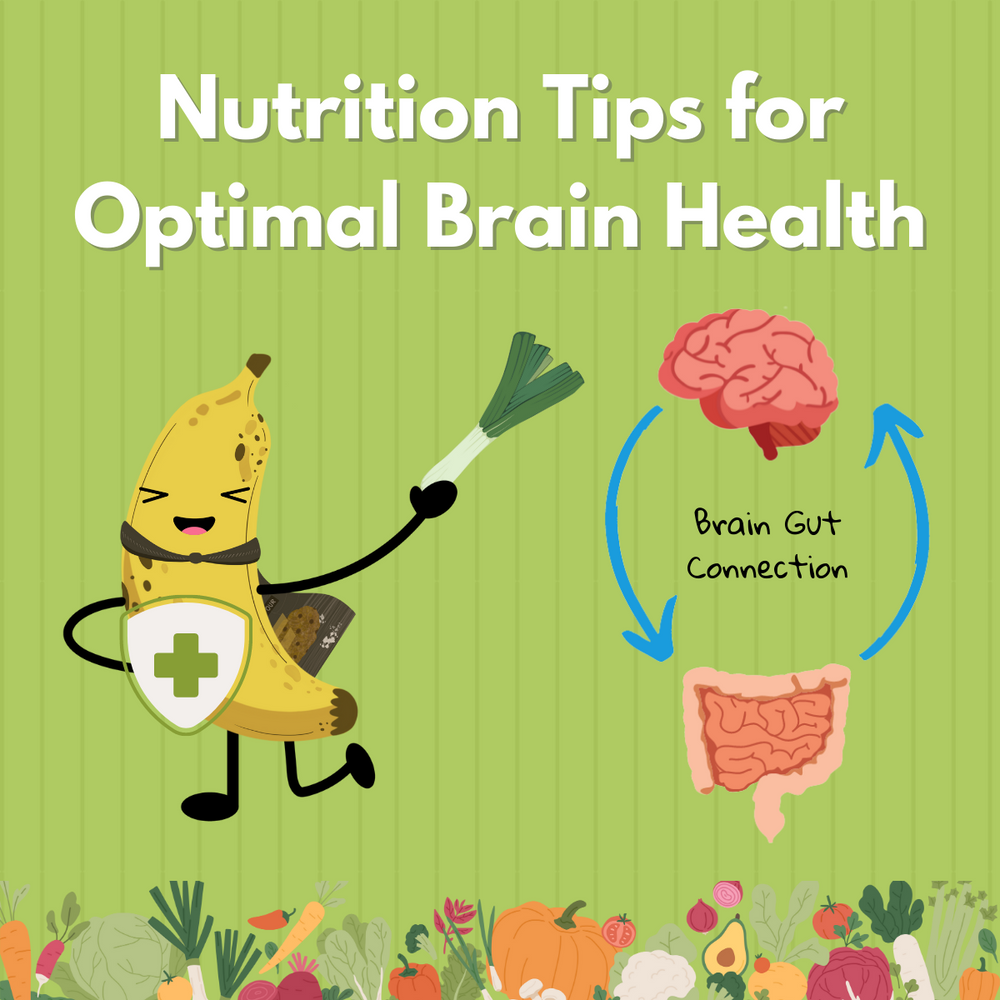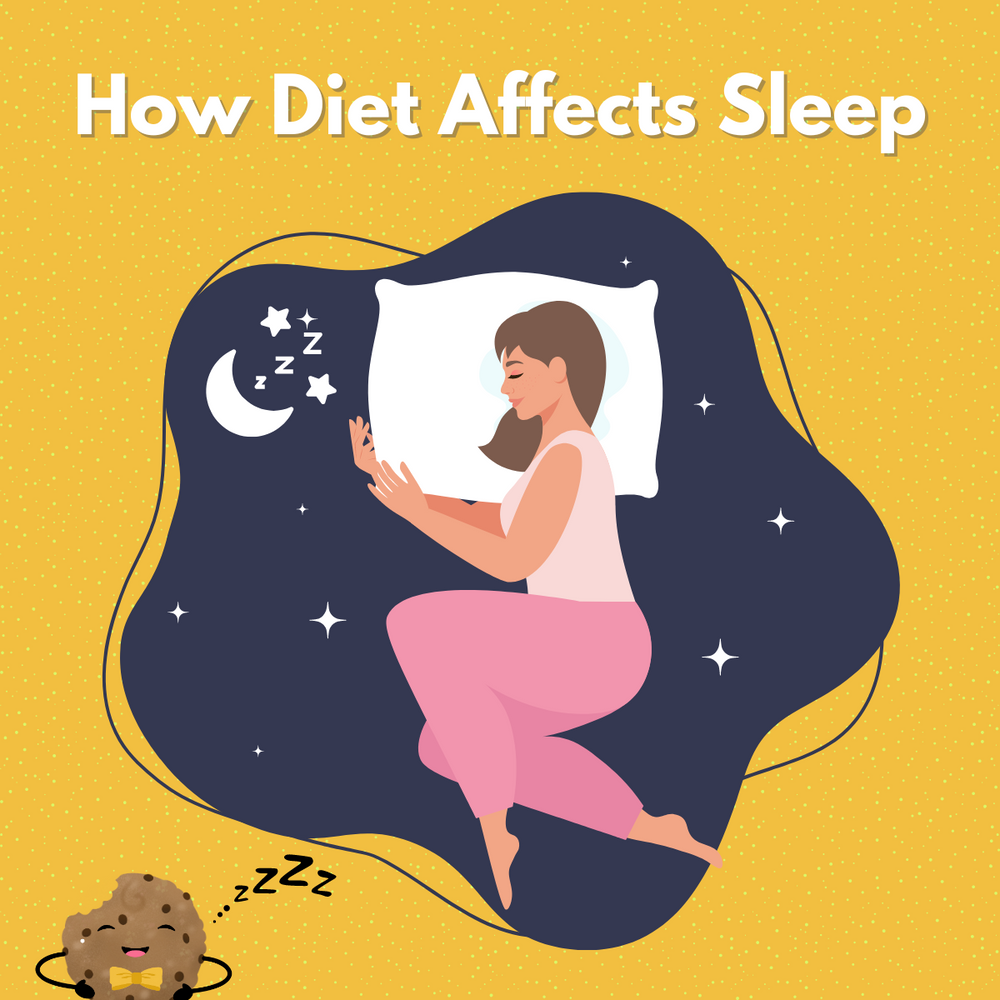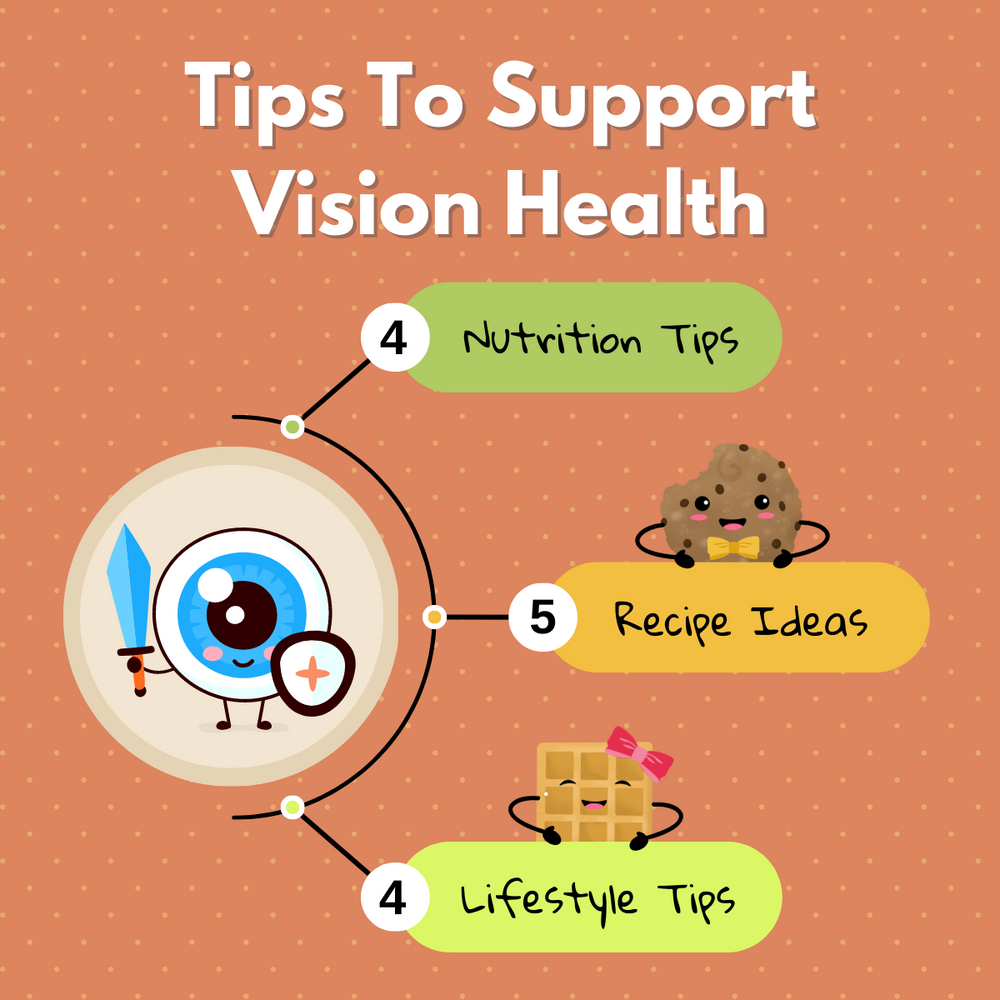The Brain-Gut Connection: Unlocking Optimal Brain Health Through Nutrition

4 Ways to Optimize Brain Health by Improving Gut Health
March is brain health month in Canada! The brain is the most complex organ of the body, regulating many core functions including our cardiovascular, respiratory, endocrine and immune systems. There are many factors that impact our brain throughout our life that are tied to our physical health, our environment, our social conditioning and access to health services. While we had no control over some of these factors (such as our mother’s prenatal nutrition before we were born, our childhood learning experiences, or how we were raised etc.), there are many things we can do now to optimize and influence our brain health now and going forward. And one of these things is our gut health! Read on to find out my dietitian-approved tips on how to optimize brain health by prioritizing gut health!
Have you heard of the brain-gut connection? If so, you may not be surprised to learn that brain health is highly connected to the health status of our gastrointestinal tract. In fact, the gut is often referred to as our “second brain”, and nothing impacts gut health more than the gut microbiome. Our bodies host trillions of microbes (bacteria), with the majority of them living in our gut! We now know that diet has a big impact on the types of microbes that live in our gut, making up what we refer to as our “gut microbiome”.
Individuals with a diet rich in plant foods (containing more fibre, plant-based protein, and unsaturated fats) have more varieties and higher amounts of beneficial microbes populating their gut. With more friendly bacteria, there is less room for harmful bacteria to grow! Research shows a rich and diverse gut microbiota (with lower populations of harmful bacteria) is associated with improved brain health and cognition! Although we are not 100% clear on exactly how a healthy gut microbiome influences brain health, recent research studies have proposed a variety of mechanisms (which are explained below)!
So, what can we do to have a positive impact on our brain-gut health connection? Here are a few nutrition tips that may interest you:
1) Focus on plant foods first!
It is well documented that eating a variety of plant-based foods (such as vegetables, fruit, nuts, seeds, beans, lentils and whole grains), promotes the growth of healthy bacteria in the gut. These bacteria produce beneficial metabolites, which are small molecules that provide fuel and structure to body cells, trigger signaling pathways and catalytic reactions in the body, and provide defense/ immune stimulation to help protect the body from pathogenic activity and inflammation. The effects of these beneficial bacteria on metabolic compounds, gut hormones, neurotransmitters (such as serotonin) are proposed to influence brain and behavior through both direct and indirect pathways. An exciting benefit that is being researched more and more is the possible reduction of mental health disorders such as depression!
2) Eat prebiotic foods daily!
Prebiotics are indigestible components of fibre-rich foods that travel down our digestive tract to the colon where they provide nourishment for the friendly bacteria that live there. Neat, hey? This is one of the reasons that I love Susgrainable flours and mixes – they’re packed full of these beneficial prebiotics! These bacteria can then multiply and flourish, releasing their beneficial compounds into the body to reduce inflammation and strengthen both gut and brain health! These friendly bacteria also produce short-chain fatty acids that feed and strengthen the intestinal gut lining, preventing pathogens and harmful toxins from crossing over into blood circulation (which also travels to the brain). This helps protect the brain (and other parts of the body) from harm and inflammation!
Food examples that contain prebiotic fibre:
- Garlic
- Vegetables like artichokes, onions, leeks, asparagus
- Whole grains like barley and oats (All of the Susgrainable mixes and flours are rich in prebiotics because they’re made with barley and/or oats!)
- Fruits like bananas and apples
- Roots like yacon root, jicama root, and burdock root
3) Eat more fermented foods!
The process of fermentation produces beneficial by-products like bioactive metabolites, short-chain fatty acids and B-vitamins. When you consume fermented foods, evidence shows that beneficial bacteria in the gut also benefit and multiply. These bacteria contribute to the production of neurological transmitters and hormones that influence brain and behavior.
Fermented food examples:
- Kefir
- Yogurt
- Tempeh
- Miso
- Sauerkraut
- Kimchi
- Other pickled vegetables
4) Include foods packed with polyphenols!
Polyphenols are a type of plant compound that help to reduce inflammation and may even boost the growth of probiotic bacteria in the gut! Evidence suggests that probiotics (another word for beneficial bacteria) have the potential to improve anxiety, depression and lower stress!
Food examples that contain polyphenols:
- Fruits like apples, grapes, berries, cherries
- Vegetables like red and yellow onions, red cabbage, carrots, spinach
- Herbs and Spices such as turmeric, cumin, cinnamon, sage, thyme, oregano
- Nuts and seeds like flax, sesame seeds, walnuts, almonds
- Whole grains
- Green tea, red wine, dark chocolate
What about a probiotic supplement?
You may have noticed that all of the nutrition tips above lead to more beneficial probiotic bacteria in the gut, that then have a positive influence on brain health. So why don’t we all just take a probiotic supplement and call it a day? Why do we need to think about nutrition if we can just take a pill already filled with these healthy bacteria (you might be wondering)?
The truth is, the “ideal healthy microbiota profile” has yet to be clearly defined. This makes it extremely difficult to supplement the right mix probiotic bacteria strains (in the right amounts) that will positively influence brain health. In fact, the mixture of probiotic strains needed for each individual likely differs depending on the bacteria already in their gut at baseline. When it comes down to it, making small changes in your diet (such as those suggested above) is more impactful and is supported by current evidence (and less expensive!).
References:




